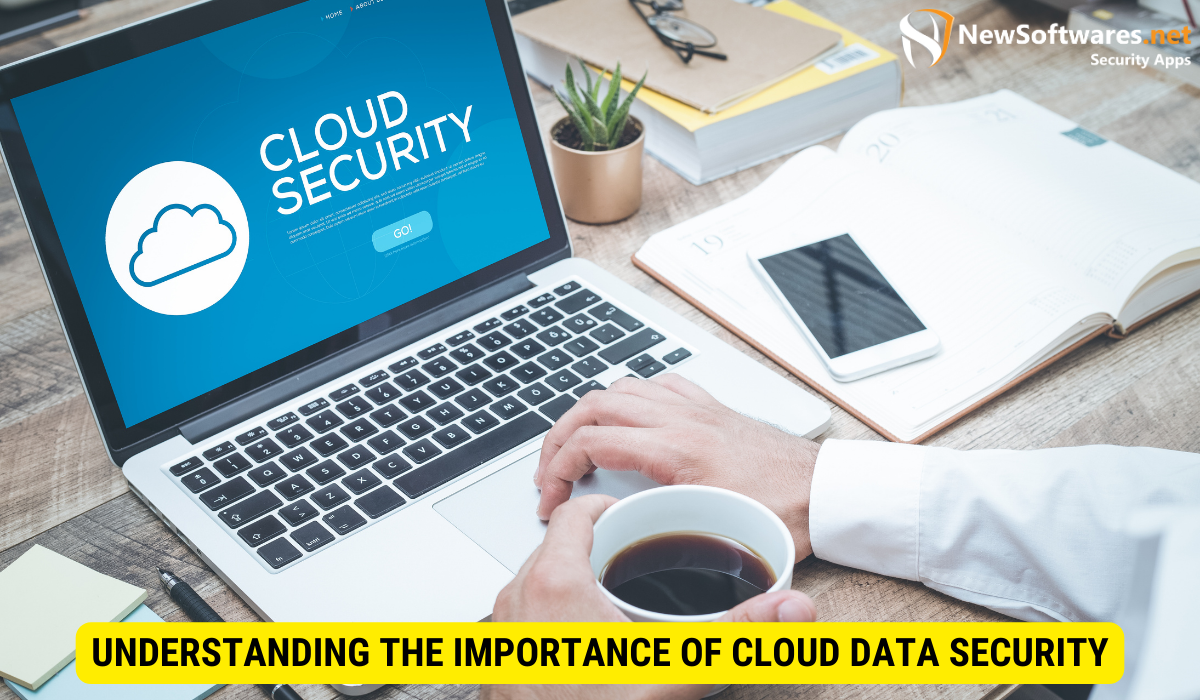Cloud data security is crucial for protecting sensitive information, complying with regulations, and maintaining operational continuity. Key elements include encryption, access control, security audits, and multi-factor authentication. Advanced strategies like AI, ML, and blockchain can enhance security, while addressing compliance and the skills gap is essential for successful implementation.
The rapid expansion of cloud computing has transformed the way businesses store, access, and process data. While the cloud offers undeniable benefits such as scalability and cost-efficiency, it also presents unique security challenges. Organizations must adopt robust strategies to protect their cloud data and mitigate the risks associated with cloud storage. Together, we will explore the top strategies for ensuring cloud data security, the key elements contributing to a resilient security framework, best practices to follow, and advanced strategies to stay ahead of emerging threats.
Understanding the Importance of Cloud Data Security

Before delving into the strategies, it is essential to comprehend the importance of cloud data security. The value of data has skyrocketed in the digital age, and any breach or loss can have severe consequences for businesses.
In addition to economic losses, data breaches can result in reputational damage, legal liabilities, and compliance issues. Given the ever-evolving threat landscape, organizations must prioritize cloud data security to safeguard their sensitive information and protect their stakeholders.
Cloud data security encompasses a range of measures and practices to look after data stored in cloud environments. These measures include encryption, access controls, data backup, and monitoring systems. By implementing robust security measures, organizations can mitigate the risks associated with cloud data storage and ensure their data’s confidentiality, integrity, and availability.
The Rising Threats to Cloud Data
Cloud data faces various threats, including unauthorized access, data breaches, account hijacking, and insider threats. Cybercriminals are constantly seeking vulnerabilities in cloud platforms to exploit, making it imperative that businesses stay ahead of these threats.
Unauthorized access to cloud data can expose sensitive information, for example personally identifiable information (PII) or trade secrets. This can result in economic losses, damage to reputation, and legal consequences. Account hijacking, on the other hand, involves the unauthorized takeover of user accounts, allowing cybercriminals to gain access to sensitive data or use the compromised accounts for malicious activities.
Insider threats pose another significant risk to cloud data security. These threats can come from current or former employees, contractors, or business partners with official access to the organization’s cloud resources. Insider threats can be intentional, for instance data theft or sabotage, or unintentional, such as accidental data exposure or negligence in following security protocols.
(DDoS) Attacks such as Distributed Denial of Service and ransomware can also disrupt cloud services and compromise data availability. DDoS attacks overwhelm cloud servers with a flood of traffic, rendering them unreachable to legitimate users. Ransomware attacks encrypt data stored in the cloud, making it inaccessible until a ransom is paid. Understanding these threats is essential for designing effective security strategies.
Why Cloud Data Security Should Be a Priority?
Cloud data security should be a top priority for organizations due to the following reasons:
- Data Protection: Cloud data contains sensitive information for instance customer data, intellectual property, and financial records. Protecting this data is critical for maintaining business operations and complying with data protection regulations.
- Compliance Requirements: Many industries have stringent regulatory requirements for data safety, such as the General Data Protection Regulation (GDPR) in the European Union. Compliance with these system is essential to avoid penalties and legal repercussions.
- Business Continuity: In the event of a data breach or data loss, organizations may experience significant downtime, loss of revenue, and damage to their reputation. Robust cloud data security strategies help ensure business continuity and lessen the impact of such incidents.
- Customer Trust: Organizations that demonstrate a strong commitment to cloud data security can earn the trust of their customers and establish a competitive advantage.
By prioritizing cloud data security, organizations can protect their valuable assets, maintain compliance with regulations, minimize disruptions to business operations, and build customer trust. Implementing comprehensive security measures and staying informed about emerging threats is essential for effectively safeguarding cloud data.
Key Elements of Cloud Data Security
Building a resilient cloud data security framework involves multiple elements that work together to protect data at different layers. Consider implementing the following key elements:
Data Encryption: A Must-Have for Cloud Security
Data encryption is necessary for cloud data safety. By encrypting data at rest and in transit, organizations can ensure that the data remains unreadable and unusable even if unauthorized access occurs.
Implementing strong encryption algorithms and securely managing encryption keys are crucial to an effective encryption strategy. Regularly reviewing and updating encryption algorithms and key management practices is necessary to keep up with advancements in encryption technology and emerging threats.
The Role of Access Control in Cloud Data Security
Controlling access to cloud resources is vital for preventing unauthorized access and protecting cloud data. Implementing robust access control mechanisms, for instance role-based access control (RBAC) and strong authentication methods, ensure that only allowed people can access sensitive data.
Regularly reviewing access privileges, revoking access for former employees or contractors, and implementing multi-factor authentication strengthen access control in the cloud environment.
Best Practices for Cloud Data Security
Regular Security Audits and Assessments
Regular security audits & assessments are fundamental for identifying vulnerabilities and weaknesses in cloud environments. These audits should include penetration testing, vulnerability scanning, and reviews of access controls and configurations.
Conducting comprehensive security assessments helps organizations proactively address potential vulnerabilities before attackers can exploit them.
Implementing Multi-Factor Authentication
(MFA) Multi-factor authentication adds security to user authentication by requiring additional factors such as a fingerprint scan, SMS code, or hardware token. Implementing MFA for all cloud services reduce the risk of illegal access and strengthens overall security.
Organizations should also encourage their employees to use password managers to ensure the use of strong, unique passwords for cloud accounts.
Advanced Cloud Data Security Strategies
Leveraging AI and Machine Learning for Cloud Security
Artificial intelligence (AI) & machine learning (ML) technologies can significantly enhance cloud data security. These technologies can investigate vast amounts of data to detect anomalies, identify threats, and respond in real-time to potential security incidents.
By leveraging AI and ML, organizations can detect and mitigate threats more efficiently, reducing the time to respond to security incidents and minimizing the impact on cloud data.
The Future of Blockchain in Cloud Data Security
Blockchain technology has the prospective to transform cloud data security by providing transparent, immutable, and decentralized record-keeping. Blockchain can enhance data integrity, enable secure transactions, and prevent unauthorized modifications.
While blockchain is still nascent, organizations should monitor its development and explore its potential applications for securing cloud data.
Overcoming Challenges in Cloud Data Security

Dealing with Compliance Issues
Complying with data protection regulations, industry standards, and legal requirements can be challenging for organizations. Staying modern with relevant regulations and establishing robust processes and controls to ensure compliance is crucial.
Incorporating data protection by design and conducting regular compliance audits can help organizations address compliance challenges proactively.
Addressing the Skills Gap in Cloud Security
The demand for skilled cloud security professionals often exceeds the supply, creating a skills gap. Organizations should invest in the training and development of their IT teams to ensure they have the necessary expertise to implement and manage secure cloud environments.
Collaborating with external partners and leveraging managed security services can help bridge the skills gap and ensure effective cloud data security.
Key Takeaways
- Cloud data security is crucial for businesses to defend sensitive information, comply with regulations, and maintain operational continuity.
- Key elements of cloud data security include encryption, access control, regular security audits, and multi-factor authentication.
- Advanced strategies such as AI and ML, as well as the future potential of blockchain, can enhance cloud data security.
- Overcoming compliance challenges and addressing the skills gap are crucial for successful cloud data security implementation.
- Continuous monitoring, regular updates, and staying informed about emerging threats are necessary for maintaining a robust cloud data security framework.
FAQs
Q: What is cloud data security?
A: Cloud data security refers to the measures and strategies implemented to protect data stored, processed, and accessed in cloud environments from unauthorized access, data breaches, and other security threats.
Q: Why is cloud data security important?
A: Cloud data security is important because it helps organizations protect sensitive information, comply with regulations, maintain business continuity, and earn the trust of their stakeholders.
Q: What are the common threats to cloud data?
A: Common threats to cloud data include unauthorized access, data breaches, account hijacking, insider threats, distributed denial of service (DDoS) attacks, and ransomware.
Q: How can encryption enhance cloud data security?
A: Encryption ensures that the data remains unreadable and unusable even if unauthorized access occurs. Implementing strong encryption algorithms and securely managing encryption keys are essential for robust cloud data security.
Q: How should organizations address the skills gap in cloud security?
A: Organizations can address the skills gap in cloud security by investing in training and development programs for their IT teams, collaborating with external partners, and leveraging managed security services.
Conclusion
Ensuring cloud data security is a top priority for organizations due to the increasing value of data and the evolving threat landscape. By understanding the importance of cloud data security, implementing key security elements, following best practices, and exploring advanced strategies, businesses can protect their sensitive information and mitigate the risks associated with cloud storage. Overcoming compliance challenges and addressing the skills gap are crucial for successful implementation. Continuous monitoring, regular updates, and staying informed about emerging threats are essential for maintaining a robust cloud data security framework.
